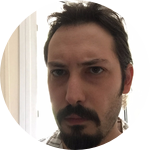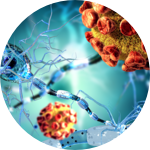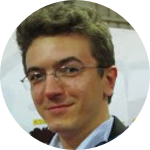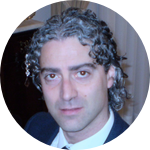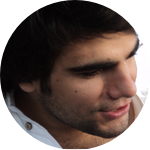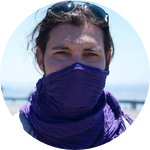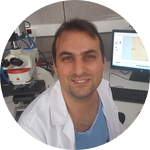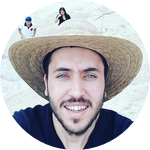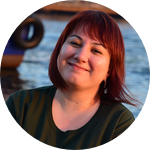About This Project
The decision making is a highly complex process, and understanding how decisions are made is an old question and has remained an active area of interest to many researchers and philosophers. The genetic mechanisms governing choices have been poorly understood. We will use the gene expression databases coupled with the comparative genomics (decision making vs non-decision making) to predict the genes potentially responsible for decision making
Ask the Scientists
Join The DiscussionWhat is the context of this research?
What allows humans to think and make a decision has been one of the most challenging questions. During daily life every person make countless decisions and in order make a decision, someone must take into account of positive and negative sides of each alternatives. However, the genetic mechanisms governing choices have been poorly understood.
The nematode Caenorhabditis elegans is a multicellular organism with a simple nervous system consisting of only 302 neurons. Due to ease of genetic manipulation and simplicity of the system, C. elegans has recently emerged as a tool to investigate genes required for the decision making. We will therefore take a computational approach paired with C. elegans experiments to systematically find genes involved in the decision making.
What is the significance of this project?
Understanding how decisions are made in the real life is a compelling question, until but recently scientists have lacked the tools to understand the underlying genetic mechanisms of decision making. Employing a computer based approach coupled with C. elegans experiments will provide insight into the molecular mechanism of decision making. The previous work with C. elegans makes the organism an excellent model system, because we know that C. elegans makes a decision among the alternatives despite having a simple nervous system. Noteworthy, C. elegans has been a key model system for understanding the conserved biological characteristics related to the human system. Our work has a chance to provide an evolutionary perspective on the mechanisms underlying decision making.
What are the goals of the project?
The aim of the current project is to uncover genes associated with decision making. We will use the publicly available and integrated database (gene expressions in humans ) to predict genes potentially involved in the decision making and test the roles of predicted genes in the context of decision making. From this, we will be able to gain insight into how genetic mechanisms control decision-making process. Additionally, we can understand how different neurotransmitters contribute to making a decision in a range of environments. We hope to employ the nematode C. elegans to reveal a well kept secret of nature: Molecules of Thinking.
Budget
C. elegans has emerged as a model organism for studying molecular mechanisms underlying decision-making. We are a group of scientists who self-fund ourselves to be able to continue our scientific activities. However, our research efforts are being jeopardised by the lack of funding for research. If funded, we are willing to continue our efforts to test a number of conserved genes that are computationally predicted to be involved in decision making. This research may contribute to the understanding of how decisions are made in the nervous system.
Endorsed by
Meet the Team
Team Bio
Our core team, Kaan Yilancioglu, Oktay Kaplan and Osman Doluca, voluntarily organized a CRISPR/Cas9 Workshop, gene editing tool, at Uskudar University in the summer 2016. After the CRISPR/Cas9 Workshop, we shared some questions and a number of ideas to discuss over lunch, which resulted in new ideas about how we can pursue decision making.
Oktay I. Kaplan
Oktay I Kaplan has recently started to work as a researcher/lecturer at the Department of Medicine in Istanbul Medeniyet University, Istanbul, Turkey. Kaplan traveled to Dublin to perform his PhD at University College Dublin, Dublin, Ireland under the supervision of Dr. Oliver Blacque and received his Ph.D in Genetics from University College Dublin, Dublin, Ireland in 2011. In 2012, he joined the Tursun Lab, Berlin Institute for Medical Systems Biology (BIMSB), Max Delbrück Center (MDC), Berlin, Germany to carry out his postdoctoral studies and was subsequently awarded both an EMBO Long-Term Fellowship and Helmholtz Postdoctoral Fellowship in 2012. His scientific activity focuses on understanding the molecular mechanisms of direct cell reprogramming employing a combination of genetic, and cell biological methods in Caenorhabditis elegans. His recent work involves the use of C. elegans to explore the molecular aspects of decision making. C. elegans is an excellent model system to test a number of conserved genes that are predicted to be involved in decision making. This research may contribute to the understanding of decision making in the nervous system.
Burak Berber
Burak completed his BSc in Biology in Eskişehir Osmangazi University and has been working towards his MSc
Pınar Öz
Pınar Öz was graduated from Molecular Biology and Genetics, Boğaziçi University in 2006. She got her PhD from International Max Planck Research School for Neurosciences, Göttingen, Germany in 2011. Field of her doctoral study was theoretical neurobiophysics. After a short post-doc period in Max Planck Institute for Dynamics and Self-Organization, Göttingen, Germany, she went back to Boğaziçi University and was a post-doc in the Institute of Biomedical Engineering between 2012-2014. Currently, she is a full-time faculty member in Molecular Biology and Genetics, Üsküdar University. Her research focuses on the functional neurodevelopment of the mammalian brain, with a special interest in memory network dysfunction in schizophrenia.
Kaan Yılancıoğlu
Kaan Yılancıoğlu was graduated from Istanbul University, Cerrahpasa School of Medicine, Medical Biological Sciences and Genetics. He got his MSc. and PhD. from Sabanci University, Biological Sciences and Bioengineering. He attended several research projects in Harvard Medical School, Tufts University and University of Toronto. He studies multidrug resistance of pathogenic microorganisms, drug interactions, systems pharmacology. He published in several high impact journals and has two patent applications on drug discovery. Some of his other research interests are drug discoveries in mammalian systems against cancer, bioinformatics, genetic biomarker discovery, finding genetic background of human diseases. Besides his reseach activities, he is highly interested in technology transfer. He is one of the entrepreneurs of a biotechnology company, SynVera, which has research activities on finding synergistic drug combinations againts pathogenic microorganism and different cancer types.
Sebiha Cevik
Soon after Sebiha Cevik completed her BSc degree she joined the Marc Vidal Lab in Dana Farber Cancer Institute, Harvard University, Boston, USA in July 2005 as a research assistant. Subsequently she embarked on her PhD study in the Conway Institute, University College Dublin (UCD), Dublin, Ireland in 2006. Her PhD study aimed at understanding the roles of novel ciliary-related genes in cilia biogenesis using C. elegans as the primary model system. Cilia are an evolutionary conserved organelle from Chlamydomonas, C. elegans, Drosophila, Zebrafish to Human and have become the intensive focus of research owing its direct role in a wide range of human diseases. She obtained her Ph.D. in Genetics in 2011. She has started to work as a researcher/lecturer at the Department of Life and Natural Science in Abdullah Gul University, Kayseri, Turkey since 2015.
She set up a research lab, where she employs C. elegans as the primary model organism to understand the molecular mechanism underlying decision making in the nervous system. Her lab has started to investigate the roles of computationally predicted candidate genes in the decision making using behavior assays, genetics, cell biology and optogenetics.
Berrak Albostan
Berrak obtained her BSc in Molecular Biology and Genetics from Bilkent University, Ankara, Turkey. She is currently a research assistant working under the supervision of Dr. Sebiha Cevik to investigate the molecular mechanisms involved in decision making using genetics, cell biology and behavioral assays in C. elegans. Additionally, she employs C. elegans to reveal the functions of genes associated with Ciliopathies.
Osman Doluca
Osman completed his PhD at Massey University in New Zealand on developing fluorescently labelled nucleic acids and extraordinary nucleic acid structures (G-quadruplexes and triplexes). He published in several high impact journals on DNA topology and modifications before completion of his PhD. Soon after he started to work in private sector for developing miRNA detection assays in RTA laboratories in Turkey. He has started working in Izmir University of Economics by 2016 in the Department of Biomedical Engineering. Currently he is working on developing bioinformatics tools for several purposes, such as the detection of extraordinary DNA topologies in the genome
Lab Notes
Nothing posted yet.
Additional Information
What allows humans to think and make a decision has been one of the most challenging questions. During daily life every person make countless decisions and in order make a decision, someone must take into account of positive and negative sides of each alternatives. From a scientific perspective there is a growing need to better understand genetic mechanisms underlying decision making. Understanding molecular basis of decision making is interesting not only for scientists but also a range of professions including doctors, economists and politicians. We are a group of scientists who join forces to advance our understanding of the molecular basis of decision making process. We will use the gene expression databases coupled with the comparative genomics (decision making vs non-decision making) to predict the genes potentially responsible for decision making and then will employ the nematode Caenorhabditis elegans, one of the most studied model organisms, and perform experiments to confirm our predictions. We can learn a lot about the molecular basis of decision making by looking at genetic codes of decision making and non-decision making organisms !!!
Project Backers
- 3Backers
- 9%Funded
- $254Total Donations
- $84.67Average Donation
